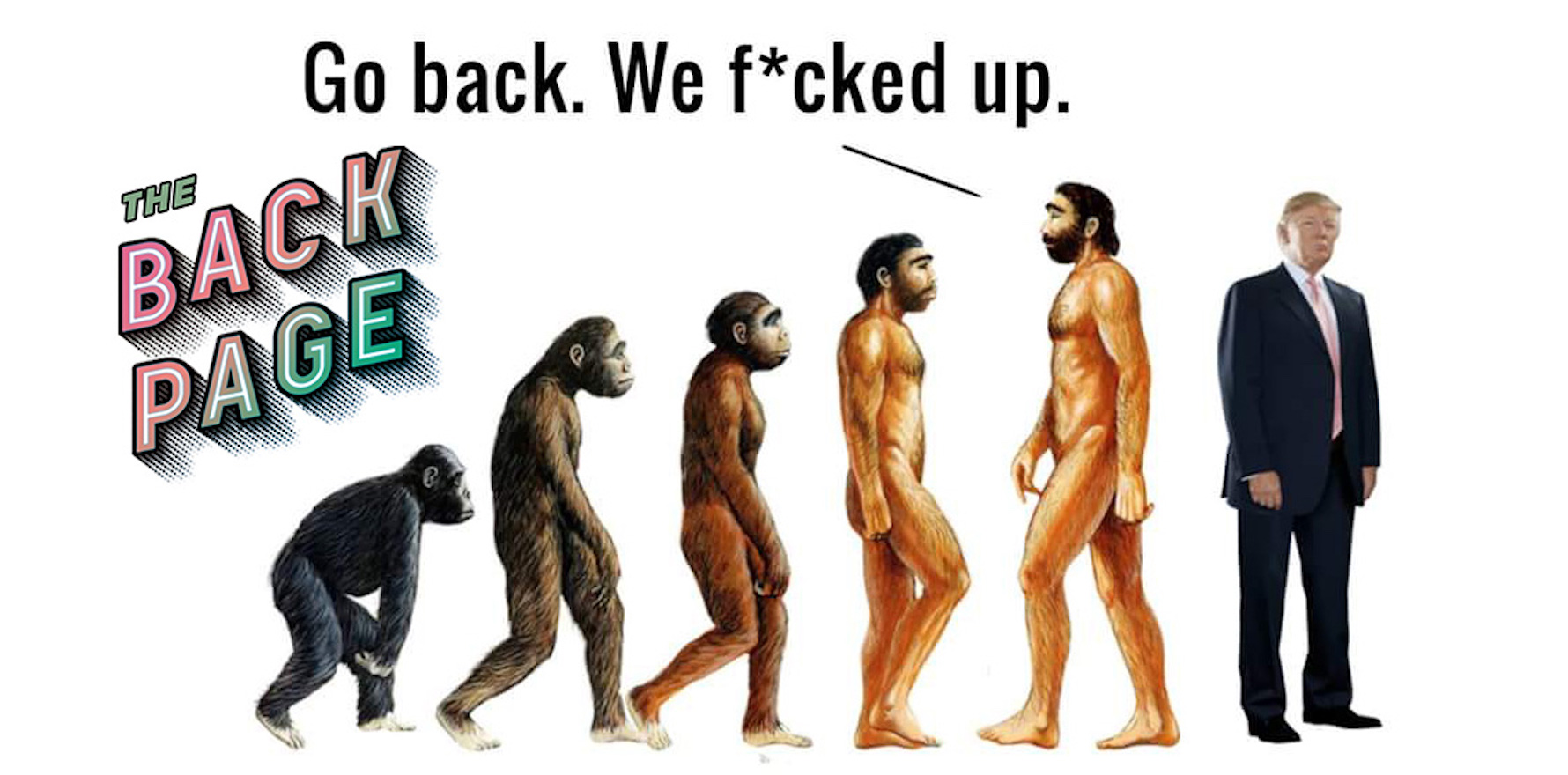Believing you're descended from animals makes you more of a human being.
Evolution by natural selection must be one of the most elegant theories in science.
The Back Page can’t back up this statement except by remembering the first time we heard it explained, when it instantly made more sense than just about anything we’d learned in our short life to date.
It’s always grated that this powerful theory comes trailing vicious little associations, however spurious, with early-20th-century racism.
So we’re hugely heartened by a large study across many countries that tested whether belief in human evolution predicts prejudice towards other humans. It does, but in the other direction.
Researchers from the University of Massachusetts Amherst used datasets including from the American General Social Survey and Pew Research Center to find associations between belief in evolution and levels of various types of bigotry.
In the US they measured racist attitudes towards Black people and immigrants, and support for discrimination against LGBTIQ people; and in 19 Eastern European countries, 25 Muslim countries and Israel, they looked at ingroup biases, prejudicial attitudes towards outgroups and support for conflict resolution.
Everywhere they found belief in evolution was associated with less discrimination towards others.
Among Americans, lower belief in evolution was also associated with “militaristic attitudes toward political outgroups”.
Belief in evolution corresponded in Israel with greater support for peace among Jews and Palestinians and in Muslim countries with less negative attitudes towards Christians and Jews.
The researchers adjusted for education, political ideology, religiosity, cultural identity and scientific knowledge.
The results kept showing “that the disbelief in human evolution is the driving factor and most consistent predictor of prejudice in comparison to other relevant constructs”, the authors wrote.
“We found the same results each time,” said lead author Stylianos Syropoulos, an associate professor of social psychology, “which is basically that believing in evolution relates to less prejudice, regardless of the group you’re in, and controlling for all of these alternative explanations.”
This shouldn’t be surprising – if you concede a shared inheritance with non-human animals, it must be a stretch to believe other humans are importantly different from you – but it does make this recent progress on teaching evolution in American schools all the more welcome.
If you see someone monkeying about with science, let felicity@medicalrepublic.com.au know


